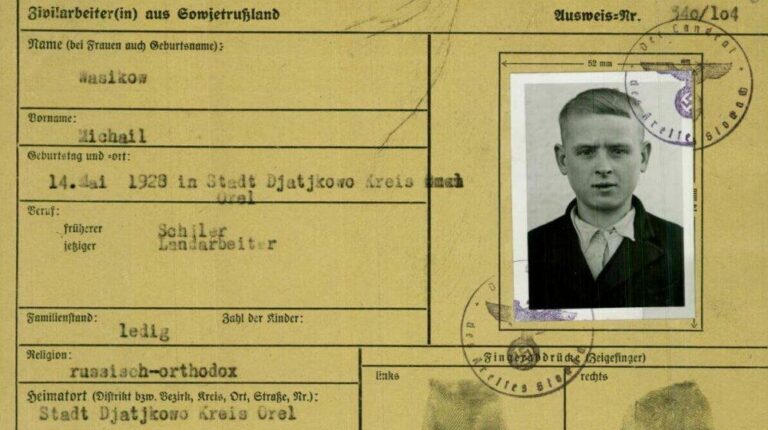Unveiling the Past: The Significance of Newly Discovered Nazi Documents in Argentina
In a remarkable turn of events that has garnered worldwide attention, authorities in Argentina have stumbled upon crates brimming with extensive Nazi documents hidden within the basement of a Buenos Aires courthouse. This astonishing find, as reported by various news outlets including the BBC, illuminates the historical connections between Argentina and prominent Nazi figures who sought asylum in the nation after World War II. The contents of these documents are anticipated to offer critical insights into the activities and movements of key Nazi leaders, prompting significant inquiries regarding the depth of thier presence in Argentina and its implications for historical accountability and memory. As investigations unfold regarding these documents’ origins and significance,this finding is set to reignite discussions about the legacy left by the Nazi regime and its ongoing impact on South America.
Historical Significance: Insights from Uncovered Nazi Documents
The recent unearthing of crates filled with Nazi-era documentation has rekindled interest in research related to World War II and highlighted complexities surrounding remnants from this dark chapter. Scholars believe these documents may contain crucial information about operational strategies employed by nazis, possibly revealing previously obscured facets of history. Historians anticipate discovering everything from official communications to personal letters that could enhance our understanding of how Nazi ideology permeated actions across Latin America and beyond.As researchers delve into these materials, they aim to draw connections between Argentina’s role as a refuge for fleeing Nazis and broader implications for governance in post-war Latin America.
The ramifications stemming from this cache extend well beyond academic curiosity; they could reshape long-held narratives concerning post-war dynamics. For example, examining interactions between local Argentine leaders and German officials might unveil new revelations about complicity or resistance within South America during that era. Additionally, insights derived from these documents may influence contemporary perceptions surrounding prosecutions related to war crimes committed during WWII. This renewed focus could foster international dialog on accountability, justice, and collective memory as historians collaborate with legal experts to weave newly discovered narratives into existing World War II scholarship.
Ethical issues Surrounding Archival Preservation
The revelation of crates containing sensitive Nazi documentation raises significant legal and ethical dilemmas regarding archival preservation practices.On one hand, accessing such materials can yield invaluable insights into historical occurrences while serving as essential evidence for scholarly inquiry; however, it also poses risks concerning individual privacy rights or may reopen wounds for victims affected by past atrocities. Authorities responsible for safeguarding these archives must develop extensive frameworks that balance transparency with respect towards those impacted by documented events.
the potential consequences associated with accessing sensitive information are profound; thus legal structures must adeptly navigate between freedom of information rights versus individuals’ privacy rights. key considerations include:
- Ownership Rights: Determining who holds authority over access decisions pertaining to these documents.
- Cultural Context: Ensuring materials are presented accurately within their historical context to prevent misinterpretation.
- Safeguarding Information: Implementing protective measures against exploitation or misuse of sensitive data.
Advocating for Transparency: The Importance of Public Access to Historical Records
The recent discovery has sparked an urgent conversation around public access to records tied directly back to one humanity’s darkest epochs—the Holocaust era—within an Argentine court’s basement setting. Proponents argue that making such documentation publicly available is not merely a moral obligation but also vital for comprehending complex events shaping 20th-century history overall; unveiling truths hidden beneath long-standing myths while facilitating research on totalitarian regimes’ repercussions is crucial moving forward.
Pushing back against restrictions on access emphasizes several pivotal points:
- A Comprehensive Perspective:Making records accessible allows historians/researchers greater opportunities to connect dots leading toward deeper understandings surrounding systematic oppression/atrocities committed throughout history.
- Pursuing Accountability:Transparency promotes obligation regarding past actions ensuring lessons learned remain ingrained within societal consciousness moving forward
 Â- Public Engagement : Society at large possesses vested interests when it comes down understanding how such occurrences have influenced contemporary politics/society .
Taking all arguments into account highlights an urgent need organized initiatives aimed digitizing/disseminating relevant documentation pertaining specifically towards Nazism .As communities confront legacies rooted fascism/authoritarianism ,availability primary sources empowers citizens engage informed dialogues centered around justice/memory/reconciliation.
Conclusion: Reflecting on Historical Legacy Through New Discoveries
This groundbreaking discovery involving crates filled with crucial Nazi-era documentation underscores enduring ties linking Argentina’s past directly back towards Germany/Nazis following WWII . Not only does this find prompt inquiries relating extent influence exerted upon Argentinian society , but it simultaneously emphasizes necessity ongoing efforts address comprehend turbulent chapters embedded deep-rooted histories worldwide . As authorities continue sifting through contents contained therein , potential revelations concerning networks operating South American territories will likely emerge providing clearer perspectives illuminating shadows cast over time itself ; ultimately reminding us all importance transparency/accountability confronting legacies intertwined throughout human experience .
- Public Engagement : Society at large possesses vested interests when it comes down understanding how such occurrences have influenced contemporary politics/society .




